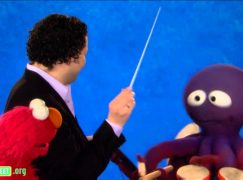How many women in the New Year’s Day Vienna Philharmonic? (We know)
mainUnder the orchestra’s new freedom of information policy, we popped the question.
Guess what? We got a straight answer: 7 are scheduled to perform, out of 13.

Click here for more.





There were ten women in 2012. Three have been added since then, for an increase of only one woman per year. That rate is about 30% below international norms, but about twice the rate of the Berlin Phil.
Do you know how many musicians were made members in the VPO since 2012 in total (it would help in gaining a clearer perspective)?
Seven were members of the VPO in 2012, and three more were in the Staatsoper Orchester awaiting tenure into the Philharmonic formation. Full details here:
http://www.osborne-conant.org/vpo-update-2012.htm
Sorry, what I meant to ask was how many Staatsopernorchester musicians in total (women, as well as men) were made members of the Wiener Philharmoniker between 2012 and now, 2015.
Cellist Ursula Wex became a member of the VPO in 2012 (after being in the Staatsoper Orchester for 9 years.) In 2013 and 2014 no women were admitted. In 2015 three women were admitted: Anneleen Lenaerts (harp),
Karin Bonelli (flute), and Patricia Koll (violin). That comes to a growth rate in the orchestra for women of 0.70% per year, which is exactly the international average for major orchestras. Such erratic yearly changes in the VPO however, cannot be used to define long-term trends.
I’ve worked out these and other details in a new report here :
http://www.osborne-conant.org/vpo-update-2015.htm
My report also has photos of all 14 women now in the Staatsoper Orchester along with their name and instrument. I also include the entry dates for the ten of them that have been tenured into the Philharmonic formation.
The level of orchestral playing is way above international norms, that’s what matters most.
I am waiting for one single comment of Mr. Osborne on what an orchestra should be like in terms of musical qualities. Art is not about statistics and percentages.
Says a man.
It’s apples and oranges.
Since live people are involved you can no more have an all male s.o. than you can bring back the Roman Circus. It’s over red rover. Only in recordings can we have the old music. The bitter truth is that even in reactionary Vienna males are not men. So half of the players would probably be gay anyway. Strangely I think Marin Alsop is a great conductor. She’s a better man than the men.
This never-ending focus on the Vienna Philharmonic does nobody any favours, least of all women. Quality matters, not gender. If women turn out to be finer fiddlers than their male counterparts, they should have all the top jobs. But just by increasing the number of women in an orchestra does not automatically give you superior quality. QED.
The issue is that without women the VPO would have inferior quality.
That remains to be seen. But how to organise an experiment?
Quite simple. At the last violin audition all four finalists were women. If they would have been excluded, an inferior candidate would have been hired. The cumulative effects over time of hiring inferior candidates due to discrimination would weaken the orchestra.
“If they would have been excluded, an inferior candidate would have been hired.”
No, it’s not quite so simple. They would do it like most other orchestras, that are unsatisfied with (or unaccepting of) a given group of candidates and declare the audition to be inconclusive. As you well know, there are orchestras that have held auditions for a single vacancy for 5, 8 or even 10 years without offering any musician during that time as much as a trial.
So in this case women were higher quality. So this proves that hired men in past situations were inferior? I simply fall to see one trace of logic in your argument. I’m glad talented women are being hired, but I fail to see any proof of discrimination beforehand.
It’s interesting that when the Vienna Philharmonic judges women as being the best candidates, you think this proves they’re the best candidates, but when the judge men the best, you think they’re being discriminatory. If they’ve been repeatedly hiring poor musicians, it would show up in the quality of the orchestra. Problem is, the orchestra has consistently sounded superb.
Re “Grimm’s” comment, it’s true that some positions in some orchestra can remain open for a long time, like the Munich Phil taking ten years to fill a trumpet position. Such long waits, however, are very unusual for tutti strings, which is where most of the women in the Vienna Phil have been hired. In fact, it would be untenable for an orchestra to take ten years to fill tutti string positions. The sections would end up half empty. They would have to take what they could get.
Most of the people auditioning for tutti violin positions in orchestras are women, hence the value of the VPO widening its pool of candidates. Even at that, only 4 of the 14 women in the VSOO are Austrian. It is difficult for a country with only 8 million people to find enough good musicians for a world class orchestra — especially when it has about 15 other full time orchestras. Another reason not to exclude half the Austrian population.
SO MANY?!
13 out of 149 positions isn’t so many, but it’s progress.
Agree, William. But the present rate of progress judged by the present month’s admissions is, at last, encouraging.
Absolutely. I hope the Staatsoper/VPO will get up to about a 1% increase in women per year which would come close to international norms. Over the last ten years the ratio has been a little low, about 0.7%, but that is very welcomed progress.
What is the rate of women among the new hires?
I wish I knew, but the VPO has been careful not to divulge that information. Especially for the 10 year period from 1997 to 2007, when no women outside of harpists entered the VPO, it would have been too embarrassing.
The Viennese are careful about allowing Asians within their ranks – admit one and the floodgates will open. Yes, unfortunately their past Nazi affiliations still hold sway in a most conspicuous way…….
The Li Chau Symphony Orchestra in north China has become a model of modern emancipation because it is entirely made-up of European women. Local audiences don’t like it because it does not seem to be a Chinese orchestra any longer, and especially no longer the original Li Chau ensemble wich sported only Chau musicians. Although the level of performance has greatly improved, older Chau inhabitants complain about the difficulty of identifying with their much-loved orchestra, in spite of the programming showing many new works composed by contemporary Chinese composers. Some of these old critics have been banned from the concert hall on grounds of racism and lack of modern cosmopolitism, which the Party had tried to stimulate in Chinese cultural life.
When will their Bulgarian woman concertmaster actually be shown playing leader on the New Year’s Day b’cast??
Yes! It surely has to be Albena’s turn – she’s been a full member since 2011…
With or without women the VPO has always been the best orchestra in the world. This is not as issue for me. My main problem when I go to a concert is the lack of really good young people – men or women – to conduct them. Harding, Dudamel, Nelssons, YN-S? Come on. Bréguier and Mälkki are my present favourites but they have not been invited yet, as far as I know.
I’m not convinced that the Vienna Philharmonic is the ‘best orchestra in the world’. I saw them twice in New York at Carnegie Hall and found them, frankly, lacklustre at best. There was, for me, a real feeling of the routine about their performance of Beethoven 9 under Welser-Most. The attitude struck me as ‘well, here we are. The Vienna Philharmonic. What more do you want?’
I don’t think they can hold a candle to the mighty Berliner Philharmoniker. Now THEY are great orchestra!
I agree, considering the fact that the title of the best orchestra is granted on an utterly subjective basis. While I’ve never been a big fan of the Wiener Philharmoniker sound/style (I don’t like their “ein bisserl g’schlampert” approach in the strings) and I’ve seen other top orchestras have “Beamtenorchester”-Nights, the worst I’ve personally seen was the Boston Symphony Orchestra a couple of years ago; that concert could have been described as a group of beta-blocker-zombies, making music in a technically correct fashion.
The Berliner Philharmoniker, Concertgebouworkest and Gewandhausorchester have (for subjective reasons of course) always been my personal favourites.
As a student in Vienna in the early 80s I had the privilege of attending many VPO performances over a few years. To my young ears their performance standards varied wildly. Their best concerts were definitely up to their reputation, but they had plenty of boring, sloppy and routine days.
….. like every orchestra made-up by humans. It all depends upon the conductor.
Agree. Listening them now and hear nothing outstanding.
… and hopefully won’t be.
The profession of trash handler is overwhelmongly dominated by men worldwide.
In the US, aproximately 90% of trash handlers are men.
Its time we advocate for equality in all professions.
Really stupid analogy…
Instead of advocating equality, can we not advocate for the best person to get the job, whether male or female? The focus on quotas is frustrating and unnecessary.
Just before Christmas, the Bologna Mandoline Orchestra has been visited by Mr Osborne who did his yearly inspection round, and his report exposed a serious imbalance in gender distribution among the players: 5,5 out of 10 players were female, and one female player was unmasked as a transvestite from Seatle (US), which upset the calculation system. The director, the indefatigable mrs Corigliani, went searching for the disrupting half woman, but could not detect such unusual mandoline enthusiast. But she was forgiven on the condition that she balance the dominating female gender with at least one Asian male player.
I agree with Mr. Linardos. As a student at the Wiener Hochschule in the mid-1970’s, I found performances of the VPO and Opera House varied and seemingly casual in approach. Mozart, however, was played with great elan but attempts at Prokoviev and Janacek quite uncaring. Horns were magnificent, oboes edgy and near nerve racking, strings never at full boil and percussion akin to a military band. Surprisingly, the best concert at the Spring Festwochen in 1975 was delivered by the Philadelphia Orchestra under Ormandy! My Austrian classmates were impressed but found the overall sonic landscape a bit too “American.” Go figure.
Yes! Leaving Philly out of the list of (best) orchestras is insanity. My two personal favorites – and I hear most within a season in NY – are Philly and Amsterdam.
Völlig sinnloses Thema
Counted 6 this year in the annual sweepstake, one hiding among the ranks of the double bass players. Do we include a harp player ? This freedom of information info availability invalidates the bet . Seriously , there should be more and not for the silly old reasons , we’re in the 21st century , we all know women can play equally well as men and follow conductors equally well so let’s get with the times !